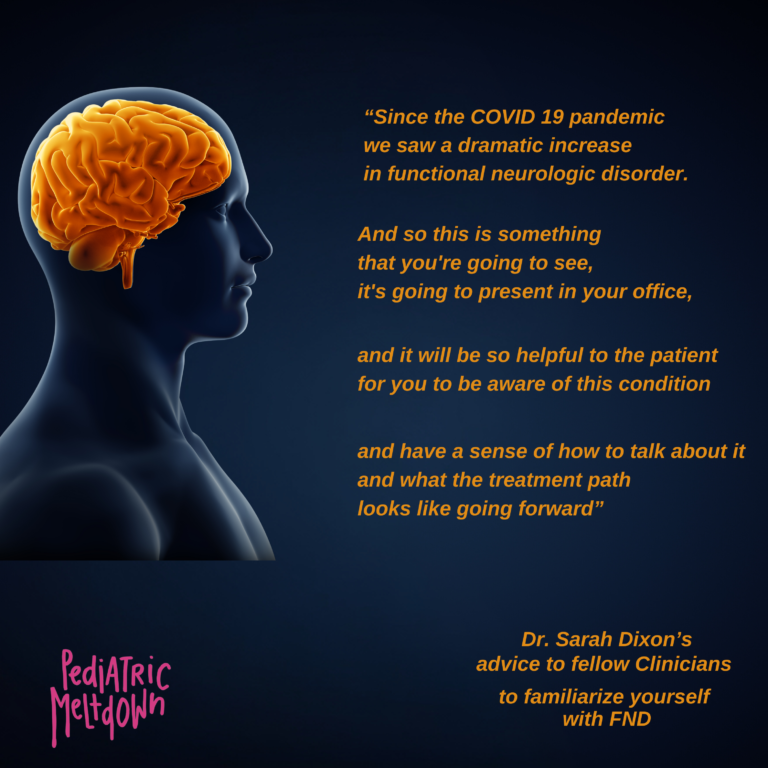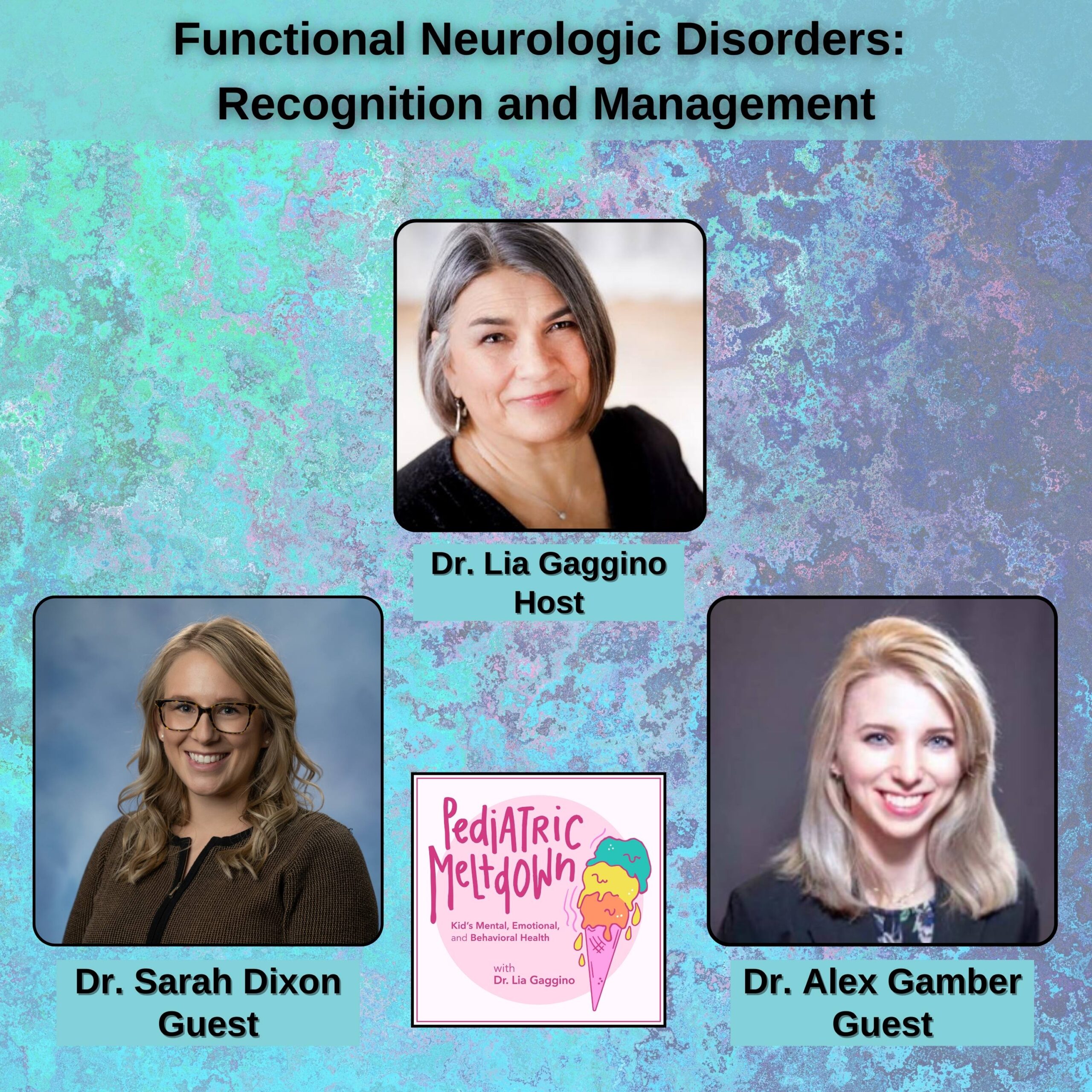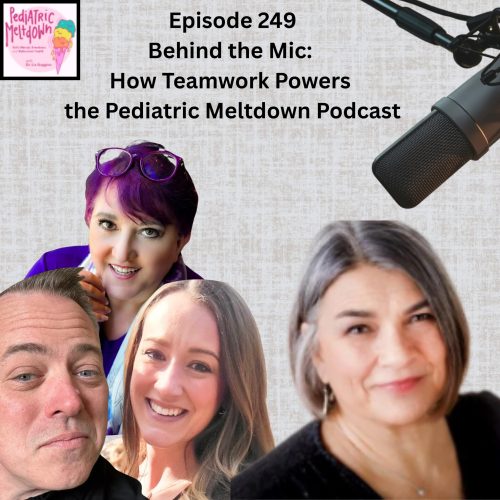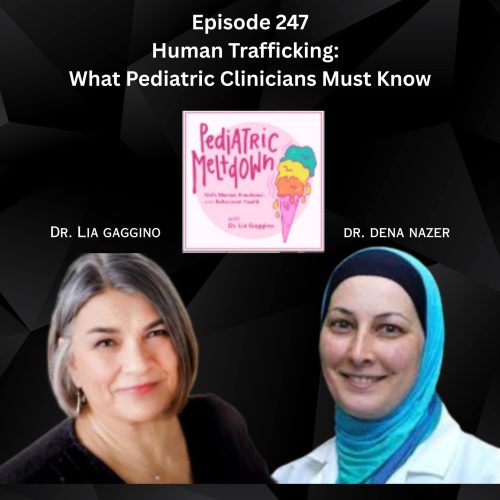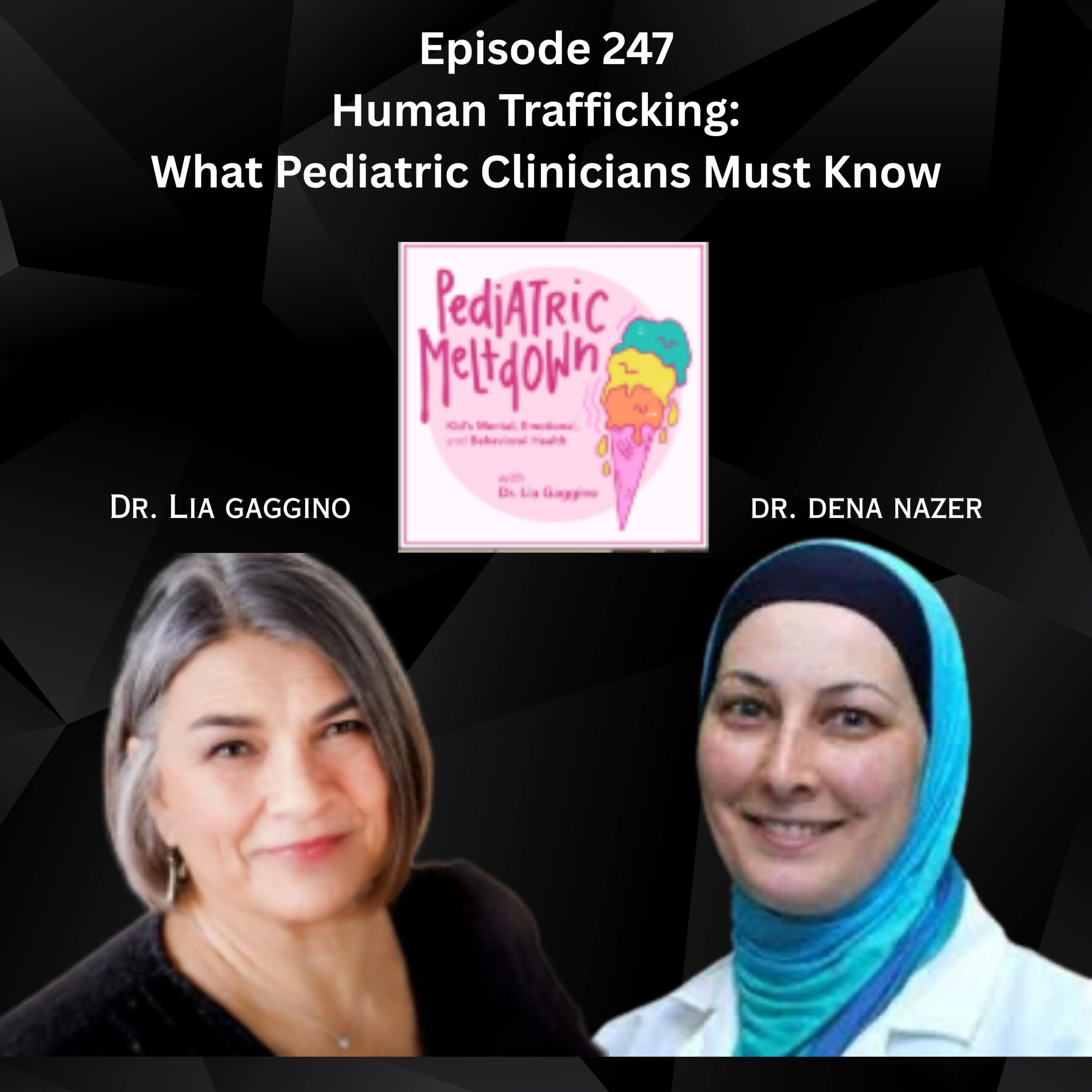Functional Neurologic Disorders: Recognition and Management
How can primary care providers better educate themselves about functional neurologic disorders to reduce stigma and support quicker treatment for their patients?
Ever wondered why some neurologic symptoms defy typical diagnostic tests? This week’s episode of Pediatric Meltdown will talk about this mystery with guests Dr. Sarah Dixon and Dr. Alex Gamber, two experts in pediatric neurology. Through their insights, you’ll learn about the difference between epileptic seizures and FND spells, and the importance of therapeutic approaches like cognitive behavioral therapy.
With actionable advice for primary care providers and families alike, this episode is a treasure trove of knowledge. Learn about innovative treatment strategies and why understanding both the psychological and neurobiological aspects is so essential. Curious to know the ultimate strategies for tackling FND symptoms? tap on PLAY to discover the key clinical pearls now!
[04:31 -14:11] Defining Pediatric Functional Neurologic Disorders (FND)
- FND is a group of conditions causing nervous system symptoms without structural abnormalities.
- They result from malfunctions in how information is transmitted and received in the brain.
- The symptoms do not arise due to any other neurologic disorder.
- It represents an undamaged brain experiencing processing issues.
[14:12 – 25:52] Diagnostic Approaches for Functional Neurologic Disorders in Pediatrics
- Subconscious learned motor patterns play a significant role in FND.
- Resting state functional connectivity MRI studies show increased connectivity between emotional processing centers and motor control networks in FND patients.
- Functional movement disorders, including functional tremor and tics, exhibit distinct physical exam findings.
- Neurologists heavily rely on physical exam findings to diagnose functional disorders.
[25:53 – 34:46] Understanding Psychogenic Non-Epileptic Spells in FND Management
- Addressing the need for effective treatment interventions.
- Ensuring that patient and family concerns are acknowledged and managed.
- Importance of patient education in understanding their condition.
- Strategies for managing subacute subconscious pressure or stress in patients.
[34:47 – 45:48] Effective Communication in Diagnosing Pediatric FND
- Emphasize the importance of clear and compassionate communication when suspecting Functional Neurologic Disorder (FND) in pediatric patients.
- Highlight how setting the stage correctly can significantly influence the patient’s treatment, prognosis, and overall improvement.
- Include educational information in the referral note to neurology, detailing the basics of FND diagnosis and the treatment plan.
- Use the referral note to walk through clinical reasoning and explain the natural history of FND.
[45:49 – 54:16] Closing segment Takeaways
Links to resources mentioned on the show
Taking Control of Your Seizures: Workbook
Joel M. Reiter, Donna Andrews, Charlotte Reiter, W. Curt LaFrance, JR
https://www.amazon.com/Taking-Control-Your-Seizures-Treatments/dp/019933501X
Epilepsy Foundation: https://www.epilepsy.com/stories/truth-about-psychogenic-nonepileptic-seizures
Other episodes you may like:
https://pediatricmeltdown.com/episodes
- PANDAS and PANS: Non-pharmacologic Treatment
- PANS and PANDAS (pt 2 of 2)
152 The Mysteries of Abdominal Pain: Disorders of the Gut-Brain Interactions
125 Tic Disorders: TikTok Tics
Building Better Workflows Podcast
Key quotes for Twitter:
“This is a true entity that exists on a neurobiologic chemical level, but we just aren’t using these types of diagnostic tools in common practice to reach this diagnosis.”…Dr. Sarah Dixon on the science behind FND diagnosis
“Functional tremor is pretty easy to distinguish for us in the office from other causes of tremor that are more insidious and would warrant imaging.”… Dr. Alex Gamber on understanding functional tremors
**Transcript of Episode Available upon request**
THANK YOU FOR YOUR SUPPORT!
Pediatric Meltdown was listed as a Top 20 Pediatric Podcast on FeedSpot.
If you’d like to connect with me, you can Tap the “What Are Your Thoughts” button at the top of the notes or you can find me on LinkedIn, Facebook, Instagram, and Twitter, or email me at gagginol@gmail.com. To learn more about me visit https://www.pediatricmeltdown.com/ or reach out, DM me on IG, FB or LI and if you’d like to chat set up a discovery call to talk about your needs and challenges: https://calendly.com/gagginol/discovery-call
